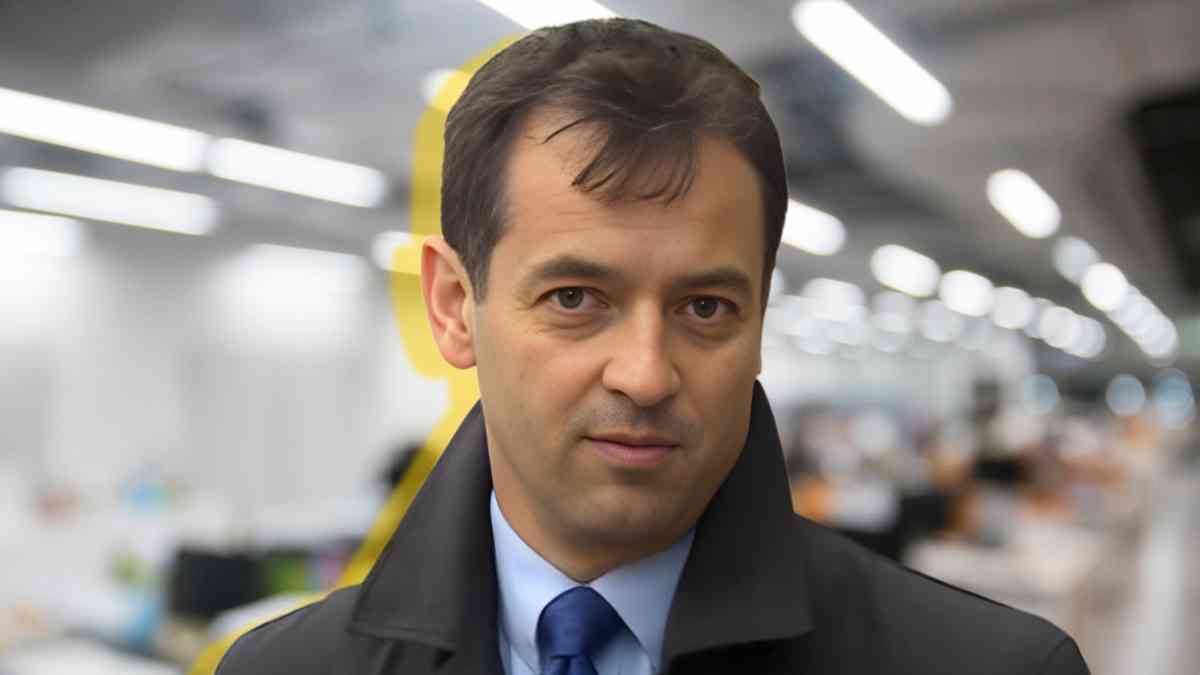Damian Grammaticas: The BBC Journalist Behind Global Headlines

Damian Grammaticas is not just another name in British journalism—he represents decades of fearless reporting, in-depth analysis, and global perspective. Known for his extensive work with the BBC, Grammaticas has travelled across continents, covering some of the most defining political and social events of the modern era. From Moscow to Beijing, Delhi to Brussels, his presence has consistently brought credibility and depth to international news.
Early Life and Academic Background
Born in Nairobi, Kenya, in June 1970, Damian Grammaticas comes from a family of Greek heritage. His multicultural background arguably gave him an early edge in understanding global cultures—something that would later shape his journalism.
He was educated at Oundle School, one of the UK’s leading independent boarding schools, known for nurturing analytical thinkers. He later attended Corpus Christi College, Cambridge, where he studied English Literature, graduating in 1992. His academic foundation in language and narrative structure became instrumental in his ability to deliver compelling reports.
After Cambridge, he further honed his media skills with a diploma in broadcast journalism at Cardiff University, one of the UK’s premier institutions for media training.
Joining the BBC: Humble Beginnings
In 1994, Damian Grammaticas joined the BBC through its journalism trainee scheme. His first assignments were rooted in local news—covering regional stories for programmes like BBC Look East and BBC Radio Cambridgeshire.
These early experiences grounded him in the fundamentals of public service journalism: integrity, impartiality, and relevance. They also helped him develop a sharp instinct for distinguishing significant news from everyday noise.
The Global Reporter: Life as a Foreign Correspondent
Hong Kong and East Asia (2000)
Grammaticas’ first major international posting was to Hong Kong in 2000, just three years after the city’s handover from British to Chinese rule. As a BBC correspondent for East Asia, he reported from across the region, including Taiwan, South Korea, Indonesia, and the Philippines.
These years gave him firsthand experience of how geopolitical tensions unfold in real-time. He reported on issues such as the East Timor conflict and North Korean diplomacy, showing a remarkable ability to translate complex international developments into accessible stories.
One such article highlighting his coverage in the region can be found here on BBC News.
Moscow (2003)
In June 2003, Damian moved to Moscow. His time there coincided with significant political shifts under Vladimir Putin’s early presidency. He covered stories on state censorship, the Chechen conflict, and Russia’s re-emerging role on the global stage.
Operating in a challenging media environment, Grammaticas maintained journalistic integrity, often reporting on topics that other correspondents found difficult to cover. His nuanced coverage of Russian politics drew praise for its balance and accuracy.
Delhi and South Asia (2006)
By 2006, Grammaticas was posted to Delhi, becoming the BBC’s South Asia correspondent. India was in the midst of an economic boom, and Damian provided essential insight into the country’s rapid transformation.
He also reported on political instability in Pakistan, civil unrest in Nepal, and humanitarian issues in Bangladesh. His ability to humanise these large-scale issues resonated deeply with global audiences.
Beijing and China (2009)
In 2009, he was posted to Beijing. China’s role in the world was changing fast, and Damian was on the frontlines. His coverage ranged from the 60th anniversary of the People’s Republic to stories on censorship, human rights, and China’s foreign policy.
Navigating government restrictions and tight information controls, he nonetheless produced incisive, balanced journalism that demystified the workings of one of the world’s most secretive political systems.
Brussels and Brexit
Returning to Europe, Damian Grammaticas took on the role of BBC correspondent in Brussels, placing him at the heart of the Brexit negotiations.
As Britain debated its exit from the European Union, his calm, factual reporting helped viewers understand the legal and political complexities involved. From European summits to late-night press briefings, his contributions were vital in keeping UK audiences informed.
Current Role: Political Correspondent for BBC News
Damian Grammaticas is now one of the BBC’s senior political correspondents, frequently appearing on platforms such as BBC Breakfast and News at Ten. He covers stories from Westminster, focusing on UK domestic politics, government decisions, and election campaigns.
Whether it’s reporting live from Downing Street or analysing budget announcements, Grammaticas brings the same global lens he has applied throughout his career. His ability to remain impartial and well-researched makes him a trusted voice amid the increasingly polarised media landscape.
Reporting Style and Public Perception
One of the defining features of Damian Grammaticas’ journalism is his clarity. He avoids sensationalism and instead chooses to contextualise events, making them understandable for both local and international audiences.
Colleagues often describe him as measured, precise, and composed, even when covering breaking news. His tone remains respectful regardless of the political climate—a quality that has earned him respect across the ideological spectrum.
Awards and Recognition
While Grammaticas is not one for self-promotion, his reporting has earned quiet admiration within journalistic circles. His extensive global postings are a testament to the BBC’s trust in his capability.
His Brexit coverage, in particular, has been referenced in journalistic retrospectives for its lucid explanation of treaties, negotiations, and European law—topics often avoided by mainstream news due to their complexity.
Personal Life and Interests
Damian Grammaticas is known to be a private individual, with very little public information about his personal life. However, colleagues note his deep interest in international cultures, languages, and history, which aligns with his career trajectory.
He remains active in journalistic communities and occasionally mentors younger reporters entering the field.
Legacy and Influence
In an era dominated by 24-hour news cycles, social media hot takes, and declining trust in the media, Damian Grammaticas stands out as a beacon of reliable, intelligent journalism.
His legacy lies not in flashy headlines or viral clips, but in the depth of his storytelling and his commitment to facts. For over two decades, he has brought clarity to some of the world’s most confusing moments.
Aspiring journalists can learn much from his approach: go where the story is, remain fair, and let the truth speak for itself.
Conclusion
Damian Grammaticas has led an extraordinary career defined by global insight, journalistic rigour, and consistent integrity. From war zones to government halls, he has shaped the way audiences understand the world.
As media continues to evolve, professionals like Grammaticas remind us of the enduring value of serious journalism. His name may not always trend, but his work has quietly influenced millions—a true mark of a journalist’s worth.



